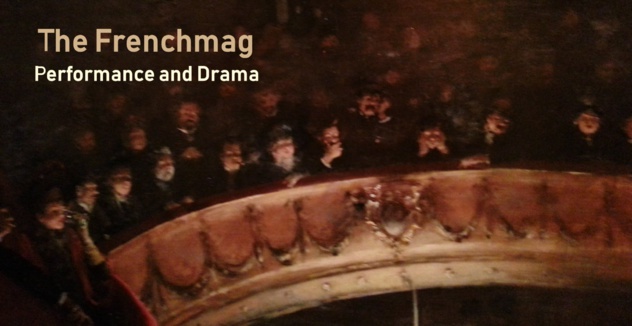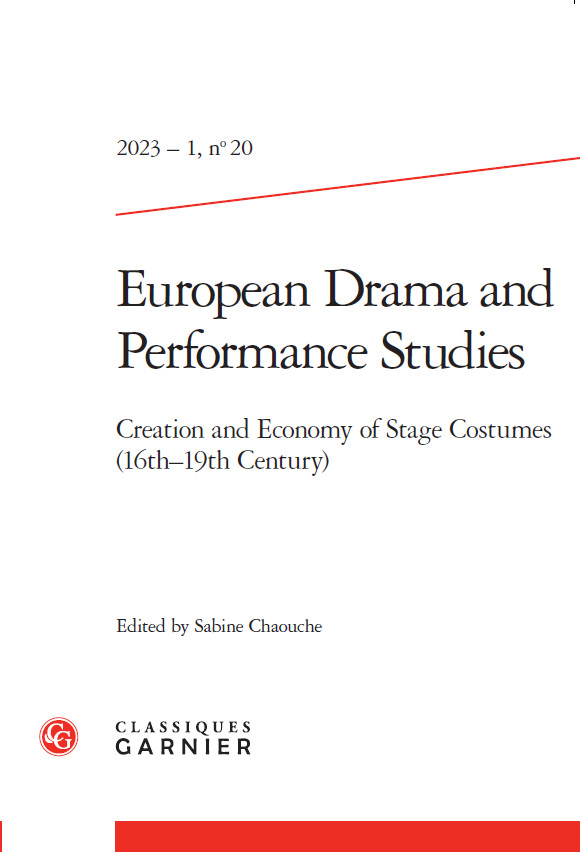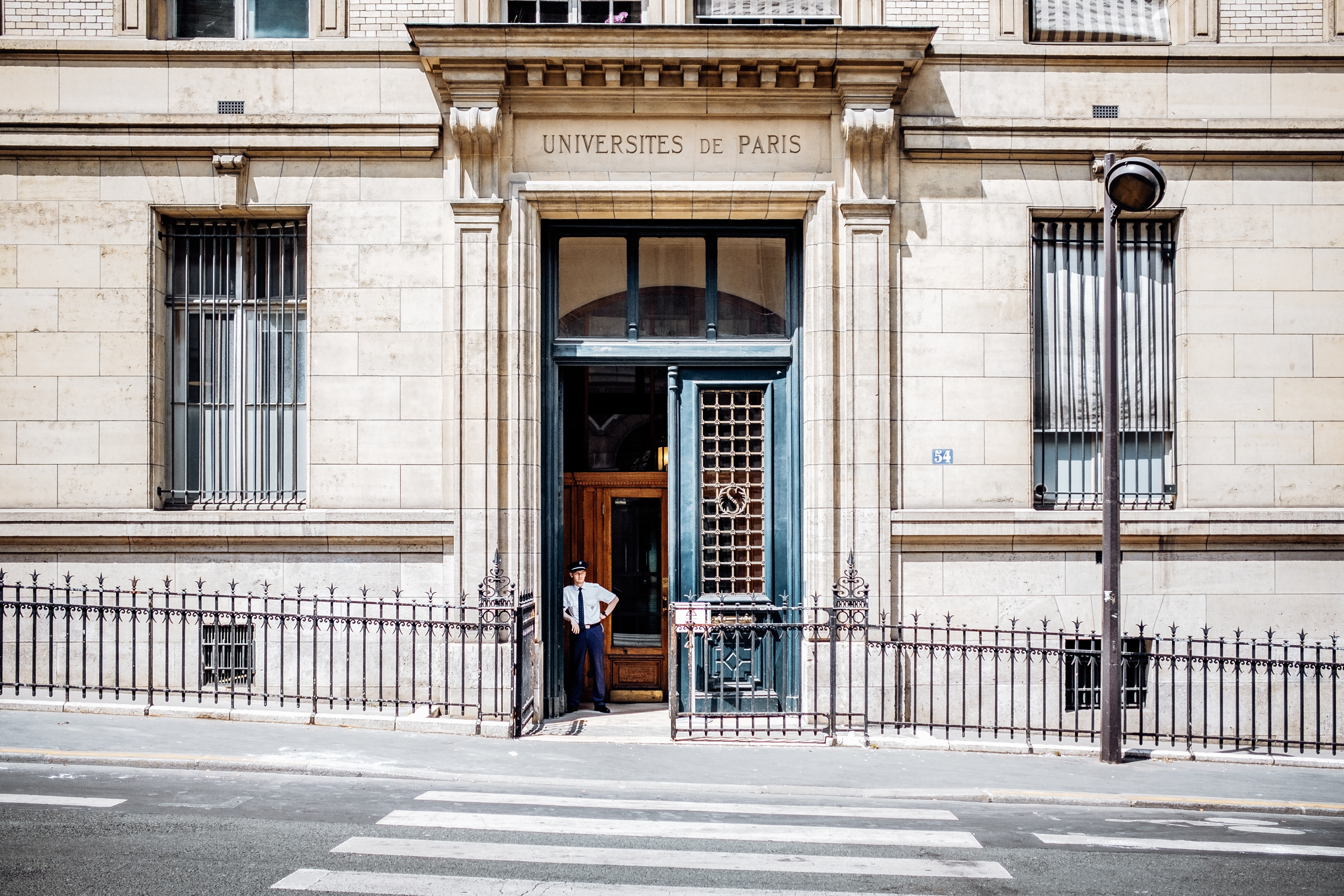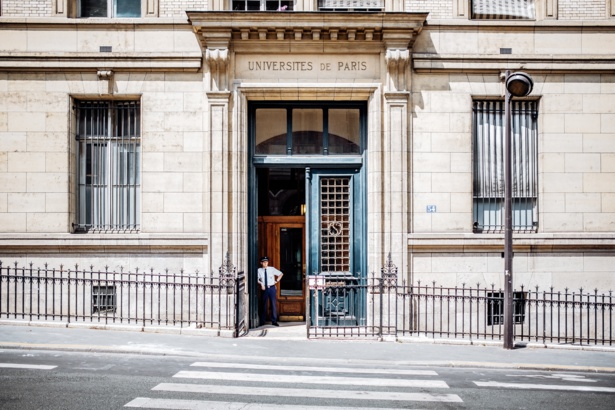The French Minister of National Education, Jean-Michel Blanquer, said that "Islamogauchisme" ("Islamoleftism") was predominant or, more precisely, strongly influenced French universities. Academics were outraged by such accusations, which were seen as a provocation. According to Rachid Benzine, using the term "Islam" with one term is a way of disqualifying the other (1). It has pejorative connotations, suggesting that those with values, ideals or ideology linked to the left have made a tacit political agreement with radicals or fundamentalists, or at least have shown some form of benevolence towards minorities, especially Muslims or anyone of Arab origin. However, the term remains unclear and controversial.
Let me correct this and share my experience of the functioning of the French university system. It would be very unfair to think that academics, especially in the humanities and arts, protect a Muslim "community" or even promote those of Arab origin. Let me begin by reminding you how stratified the university is.
First of all, there are those who are normaliens - an overwhelming majority belong to the upper middle and upper classes - and those who are, in the eyes of the latter, "nothing". This group of privileged elites consider themselves the "crème de la crème"; their mentality is strongly shaped by their social contempt. These elites have massively benefited from the advantages linked to their class (cultural and economic capital).In their world, those with a different trajectory are considered undesirable and unwelcome.
India has its social hierarchy and castes. In recent decades, the "normaliens" have created their own powerful caste at the university, closing the door to all those who prove to be different. This could be identified as a hegemonic and authoritarian form of "entre-soi" whose mechanisms could be likened to eugenics and a system based on the elimination of anyone who is "persona non grata". Some of these intellectuals may claim to be left-wing and believe in humanism and social values. However, let me make it clear again: the structure and organisation of this caste is fundamentally anti-republican and discriminatory.
Let me elaborate further on this point. If ethnic statistics could be developed in France, they would easily show that very few researchers who have an academic position in France come from the lower classes. Moreover, they would show that an even smaller percentage of them are of Arab origin. This would be particularly visible in the field of literature (that is the 9th section). An easy way to verify this would be to consult the list of staff in the Literature departments and check this. However, it would be extremely difficult to identify faculty members who are NOT "normaliens" in these departments (indeed, "normaliens" people like to declare their ENS pedigree - a form of label evidencing "pure" intelligence).
Instead of reforming higher education, and giving good support to bright people from the lower classes, the French State has for a very long time granted a substantial monthly allowance to (bourgeois) "normaliens" who, in addition to this financial support, benefit from a vast network, international exchanges and specific opportunities such as part-time teaching experience at university level ("Allocataire Moniteur Normalien"). Today, some students have "doctoral contracts" and therefore receive a monthly allowance. In the past, most PG students did not have this opportunity.
Clannism is the golden rule in French universities.
The state of mind of academics is visible in the hiring process itself. The famous "CNU" (National Council of Universities) which Minister Frédérique Vidal currently wants to reform, aims to assess whether PhD holders and those with Habilitation should be allowed to apply for a position in academia. Why does French academia need another panel to reassess what has already been assessed?
Every year, some positions are published in February/March (very few over the year) and each one has a job description which can be found on the French higher education government website. Candidates must hold the "Qualification aux Fonctions de Maître de Conférences" or "Professeur des Universités", similar to an authorization to apply at the level of Senior Lecturer or Professor, issued by the CNU. Anyone who fails to obtain an academic position within four years must reapply. One can smile when thinking of all the paperwork involved, but also of certain power relations within the CNU, especially when certain positions are "reserved" and that mediocre candidates must get the Qualification.
Let's not forget that the CNU has survived so far only because the viva process is ridiculously simple: no minor or major corrections; no options for resubmission or fail are part of the evaluation process. Anyone who has their viva is awarded the degree. In this sense, the quality of the dissertations is effectively not rigorously assessed. The three or four members of the panel are most often friends of the thesis supervisor or, at the very least, members of his or her "clique". Panels are often made up of academics who are not experts in the subject under examination. Meanwhile, the real experts are often not invited at all, mainly because they do not belong to the same "chapelle". French academics like their comfort zone of ''entre-soi''. Most of them wholeheartedly embrace a feudal system. One must swear allegiance to one's thesis supervisor. Anyone who commits a crime of lese-majesty can be slandered, ostracized and banned without mercy. Mark my word: Fear of disgrace!
But back to the hiring process. Academics would like to preserve the "French exception". Indeed, hiring is an art. Not to find the "perle rare" but to eliminate the rivals of the candidate who turns out to be the "lucky one" long before the job is advertised. University life is dominated by the "normaliens" who are therefore more inclined to hire academics with the same pedigree and social class.
It is well known that most positions are "filled" before the applications are examined. The job description is usually tailored to a specific academic. The problem is then to get rid of very good applications. These are examined by external and internal reviewers. The committee is chaired by an internal member. I once saw a French committee whose external members were all co-authors of the local candidate who obviously was hired. The chairman of the committee found nothing wrong with it.
In Europe, a doctoral degree and teaching experience at university level prevail and job descriptions include essential and desirable criteria. In France, hiring committees claim to serve the Republican ideal but in fact, their members are most often carefully chosen to favour the candidate to be hired.
The hiring process takes place in two stages: (i) an examination of each application by one internal and one external reviewer; (ii) a presentation by short-listed candidates. While the United Kingdom, for example, has a list of experience or skills that are mandatory for the position; France has no such criteria and committees want to have the "freedom" to select who they want; NOT who deserves the position. The official criteria require the candidate to hold a doctorate, a qualification to "teach" as a lecturer or professor, and a substantial body of work; some management experience. In the case of professorships, the habilitation is required. Commissions are therefore free to set their own criteria and, in this sense, can be very creative in "disqualifying" (very often excellent) candidates.
The simplest way to eliminate a candidate is anonymous voting, as anyone can be quickly eliminated without giving a reason. The second way is to discredit the application. Examiners use a lot of imagination to find flaws in strong applications: Unsubstantiated assumptions are, for example, a trick they like to use to make it appear that the candidate would not or could not teach a course. For instance, it is common practice to present any international experience as dubious or unsuitable. A candidate may hold a postgraduate certificate in teaching in higher education from a recognised UK institution and have more than ten-year experience in Higher Education; however, in the minds of French academics, pedagogy and experience do not seem to matter at all. The 'student-centred' philosophy that has gained ground in many higher education institutions around the world simply remains unknown. Imbecility goes so far as to make some reviewers state that French nationals teaching abroad must have taught at least in a French high school or taught in a French university... According to these reviewers, French expatriates are not capable of teaching in France even if they would have obtained their degrees in French universities...
The experience of teaching in higher education, especially in an international context, is generally presented as negative and inadequate, although teaching is much more controlled and evaluated in foreign institutions. Indeed, staff have to comply with strict rules in terms of learning outcomes, work plan alignment, summative and formative assessments, but also in terms of teaching quality and grading. External examiners as well as annual and periodic reviews aim to ensure high quality teaching, and the student experience is regularly reviewed in order to be improved where necessary. Surveys are part of the process, and evaluations of teaching can be a criterion for promotion. Changes to the titles of modules that have been validated, to some of the content or even to some of the assessments require certain approvals from the department or university. However, looking at the way teaching is organised in France, it could easily be said that such mechanisms are hardly in place. It is therefore deeply problematic that French academics think that teaching in foreign institutions is of poor quality and, moreover, that professors (and even French native speakers) would not be able to teach in a French university.
Pretending that the French higher education system is more difficult or more sophisticated seems terribly ridiculous, not least because an overwhelming majority of French humanities professors have no idea about quality assurance policies and procedures in foreign higher education institutions; have no knowledge or experience of the intensive teaching and administrative loads, the pressure to apply for external funding, and produce a number of annual research outputs in Q1 or Q2 indexed journals or high quality monographs within a span of six years. It is in a way "l'hôpital qui se fout de la charité" as the French say. Let's add that "Publish or Perish" does not exist in France since academics are civil servants and do not lose their job regardless of the quality of their work.
Looking at the application process in EU and oversea countries, it is clear that France has a system which, in essence, aims to make things difficult for foreigners and non-normaliens. Structural discrimination or obvious chauvinism (coupled with a certain snobbery and racism towards those from the lower classes and of Arab origin), not to say endemic anti-republican behaviour, is not infrequent in France.
Where is therefore Islamoleftism?
Let us also look at the premises of French universities: the facilities and equipment are mostly poor, very poor. Let's take a closer look at the competitions that academics boast about with contempt: the "agrégation externe" does not train lecturers in pedagogy but only evaluates critical thinking. Of course, the oral part of the examination may show some aptitude for oral presentations and demonstrate some basic communication skills; but the examination itself does not aim to evaluate pedagogy and didactics but intellectual prowess. The unofficial criterion of aggregation seems to be intellectual vanity. Indeed, let's put things into perspective: Anyone with a PhD and publications in peer-reviewed journals or prestigious academic publishers has already demonstrated critical thinking skills. Anyone who has attended conferences and read an article has gone through the same kind of "test" and process... It is therefore very surprising that French academics who have such a high opinion of themselves cannot have a better critical look at their own system and especially at the discriminatory processes they are so keen to maintain.
The 'concours de recrutement dans l'enseignement supérieur' was originally seen as a means of promoting those with intellectual ability, merit and potential, regardless of their social class, origin or background. They were created in a republican spirit to ensure fairness and equality. French academics have long forgotten this, and the Republic of Letters was gradually and surreptitiously replaced by a monarchy "de droit normalien" made of separatism and nepotism. It is time for reforms.
The academics are crying out for help because the "French exception" is under threat. Instead of cherishing this treasure, preserving it and making it a universal model emblematic of the Enlightenment and the republican spirit, they have favoured oligarchy and cronyism, forgetting all the foundations of the French nation: freedom to be different; equality of opportunity; fraternity with all those who have a different origin and social class. In this sense, there is no islamoleftism in the French academic world, but rather a rancid, far-right smell behind closed doors.
(1) Link
Sabine Chaouche
Sunway University
Let me correct this and share my experience of the functioning of the French university system. It would be very unfair to think that academics, especially in the humanities and arts, protect a Muslim "community" or even promote those of Arab origin. Let me begin by reminding you how stratified the university is.
First of all, there are those who are normaliens - an overwhelming majority belong to the upper middle and upper classes - and those who are, in the eyes of the latter, "nothing". This group of privileged elites consider themselves the "crème de la crème"; their mentality is strongly shaped by their social contempt. These elites have massively benefited from the advantages linked to their class (cultural and economic capital).In their world, those with a different trajectory are considered undesirable and unwelcome.
India has its social hierarchy and castes. In recent decades, the "normaliens" have created their own powerful caste at the university, closing the door to all those who prove to be different. This could be identified as a hegemonic and authoritarian form of "entre-soi" whose mechanisms could be likened to eugenics and a system based on the elimination of anyone who is "persona non grata". Some of these intellectuals may claim to be left-wing and believe in humanism and social values. However, let me make it clear again: the structure and organisation of this caste is fundamentally anti-republican and discriminatory.
Let me elaborate further on this point. If ethnic statistics could be developed in France, they would easily show that very few researchers who have an academic position in France come from the lower classes. Moreover, they would show that an even smaller percentage of them are of Arab origin. This would be particularly visible in the field of literature (that is the 9th section). An easy way to verify this would be to consult the list of staff in the Literature departments and check this. However, it would be extremely difficult to identify faculty members who are NOT "normaliens" in these departments (indeed, "normaliens" people like to declare their ENS pedigree - a form of label evidencing "pure" intelligence).
Instead of reforming higher education, and giving good support to bright people from the lower classes, the French State has for a very long time granted a substantial monthly allowance to (bourgeois) "normaliens" who, in addition to this financial support, benefit from a vast network, international exchanges and specific opportunities such as part-time teaching experience at university level ("Allocataire Moniteur Normalien"). Today, some students have "doctoral contracts" and therefore receive a monthly allowance. In the past, most PG students did not have this opportunity.
Clannism is the golden rule in French universities.
The state of mind of academics is visible in the hiring process itself. The famous "CNU" (National Council of Universities) which Minister Frédérique Vidal currently wants to reform, aims to assess whether PhD holders and those with Habilitation should be allowed to apply for a position in academia. Why does French academia need another panel to reassess what has already been assessed?
Every year, some positions are published in February/March (very few over the year) and each one has a job description which can be found on the French higher education government website. Candidates must hold the "Qualification aux Fonctions de Maître de Conférences" or "Professeur des Universités", similar to an authorization to apply at the level of Senior Lecturer or Professor, issued by the CNU. Anyone who fails to obtain an academic position within four years must reapply. One can smile when thinking of all the paperwork involved, but also of certain power relations within the CNU, especially when certain positions are "reserved" and that mediocre candidates must get the Qualification.
Let's not forget that the CNU has survived so far only because the viva process is ridiculously simple: no minor or major corrections; no options for resubmission or fail are part of the evaluation process. Anyone who has their viva is awarded the degree. In this sense, the quality of the dissertations is effectively not rigorously assessed. The three or four members of the panel are most often friends of the thesis supervisor or, at the very least, members of his or her "clique". Panels are often made up of academics who are not experts in the subject under examination. Meanwhile, the real experts are often not invited at all, mainly because they do not belong to the same "chapelle". French academics like their comfort zone of ''entre-soi''. Most of them wholeheartedly embrace a feudal system. One must swear allegiance to one's thesis supervisor. Anyone who commits a crime of lese-majesty can be slandered, ostracized and banned without mercy. Mark my word: Fear of disgrace!
But back to the hiring process. Academics would like to preserve the "French exception". Indeed, hiring is an art. Not to find the "perle rare" but to eliminate the rivals of the candidate who turns out to be the "lucky one" long before the job is advertised. University life is dominated by the "normaliens" who are therefore more inclined to hire academics with the same pedigree and social class.
It is well known that most positions are "filled" before the applications are examined. The job description is usually tailored to a specific academic. The problem is then to get rid of very good applications. These are examined by external and internal reviewers. The committee is chaired by an internal member. I once saw a French committee whose external members were all co-authors of the local candidate who obviously was hired. The chairman of the committee found nothing wrong with it.
In Europe, a doctoral degree and teaching experience at university level prevail and job descriptions include essential and desirable criteria. In France, hiring committees claim to serve the Republican ideal but in fact, their members are most often carefully chosen to favour the candidate to be hired.
The hiring process takes place in two stages: (i) an examination of each application by one internal and one external reviewer; (ii) a presentation by short-listed candidates. While the United Kingdom, for example, has a list of experience or skills that are mandatory for the position; France has no such criteria and committees want to have the "freedom" to select who they want; NOT who deserves the position. The official criteria require the candidate to hold a doctorate, a qualification to "teach" as a lecturer or professor, and a substantial body of work; some management experience. In the case of professorships, the habilitation is required. Commissions are therefore free to set their own criteria and, in this sense, can be very creative in "disqualifying" (very often excellent) candidates.
The simplest way to eliminate a candidate is anonymous voting, as anyone can be quickly eliminated without giving a reason. The second way is to discredit the application. Examiners use a lot of imagination to find flaws in strong applications: Unsubstantiated assumptions are, for example, a trick they like to use to make it appear that the candidate would not or could not teach a course. For instance, it is common practice to present any international experience as dubious or unsuitable. A candidate may hold a postgraduate certificate in teaching in higher education from a recognised UK institution and have more than ten-year experience in Higher Education; however, in the minds of French academics, pedagogy and experience do not seem to matter at all. The 'student-centred' philosophy that has gained ground in many higher education institutions around the world simply remains unknown. Imbecility goes so far as to make some reviewers state that French nationals teaching abroad must have taught at least in a French high school or taught in a French university... According to these reviewers, French expatriates are not capable of teaching in France even if they would have obtained their degrees in French universities...
The experience of teaching in higher education, especially in an international context, is generally presented as negative and inadequate, although teaching is much more controlled and evaluated in foreign institutions. Indeed, staff have to comply with strict rules in terms of learning outcomes, work plan alignment, summative and formative assessments, but also in terms of teaching quality and grading. External examiners as well as annual and periodic reviews aim to ensure high quality teaching, and the student experience is regularly reviewed in order to be improved where necessary. Surveys are part of the process, and evaluations of teaching can be a criterion for promotion. Changes to the titles of modules that have been validated, to some of the content or even to some of the assessments require certain approvals from the department or university. However, looking at the way teaching is organised in France, it could easily be said that such mechanisms are hardly in place. It is therefore deeply problematic that French academics think that teaching in foreign institutions is of poor quality and, moreover, that professors (and even French native speakers) would not be able to teach in a French university.
Pretending that the French higher education system is more difficult or more sophisticated seems terribly ridiculous, not least because an overwhelming majority of French humanities professors have no idea about quality assurance policies and procedures in foreign higher education institutions; have no knowledge or experience of the intensive teaching and administrative loads, the pressure to apply for external funding, and produce a number of annual research outputs in Q1 or Q2 indexed journals or high quality monographs within a span of six years. It is in a way "l'hôpital qui se fout de la charité" as the French say. Let's add that "Publish or Perish" does not exist in France since academics are civil servants and do not lose their job regardless of the quality of their work.
Looking at the application process in EU and oversea countries, it is clear that France has a system which, in essence, aims to make things difficult for foreigners and non-normaliens. Structural discrimination or obvious chauvinism (coupled with a certain snobbery and racism towards those from the lower classes and of Arab origin), not to say endemic anti-republican behaviour, is not infrequent in France.
Where is therefore Islamoleftism?
Let us also look at the premises of French universities: the facilities and equipment are mostly poor, very poor. Let's take a closer look at the competitions that academics boast about with contempt: the "agrégation externe" does not train lecturers in pedagogy but only evaluates critical thinking. Of course, the oral part of the examination may show some aptitude for oral presentations and demonstrate some basic communication skills; but the examination itself does not aim to evaluate pedagogy and didactics but intellectual prowess. The unofficial criterion of aggregation seems to be intellectual vanity. Indeed, let's put things into perspective: Anyone with a PhD and publications in peer-reviewed journals or prestigious academic publishers has already demonstrated critical thinking skills. Anyone who has attended conferences and read an article has gone through the same kind of "test" and process... It is therefore very surprising that French academics who have such a high opinion of themselves cannot have a better critical look at their own system and especially at the discriminatory processes they are so keen to maintain.
The 'concours de recrutement dans l'enseignement supérieur' was originally seen as a means of promoting those with intellectual ability, merit and potential, regardless of their social class, origin or background. They were created in a republican spirit to ensure fairness and equality. French academics have long forgotten this, and the Republic of Letters was gradually and surreptitiously replaced by a monarchy "de droit normalien" made of separatism and nepotism. It is time for reforms.
The academics are crying out for help because the "French exception" is under threat. Instead of cherishing this treasure, preserving it and making it a universal model emblematic of the Enlightenment and the republican spirit, they have favoured oligarchy and cronyism, forgetting all the foundations of the French nation: freedom to be different; equality of opportunity; fraternity with all those who have a different origin and social class. In this sense, there is no islamoleftism in the French academic world, but rather a rancid, far-right smell behind closed doors.
(1) Link
Sabine Chaouche
Sunway University






